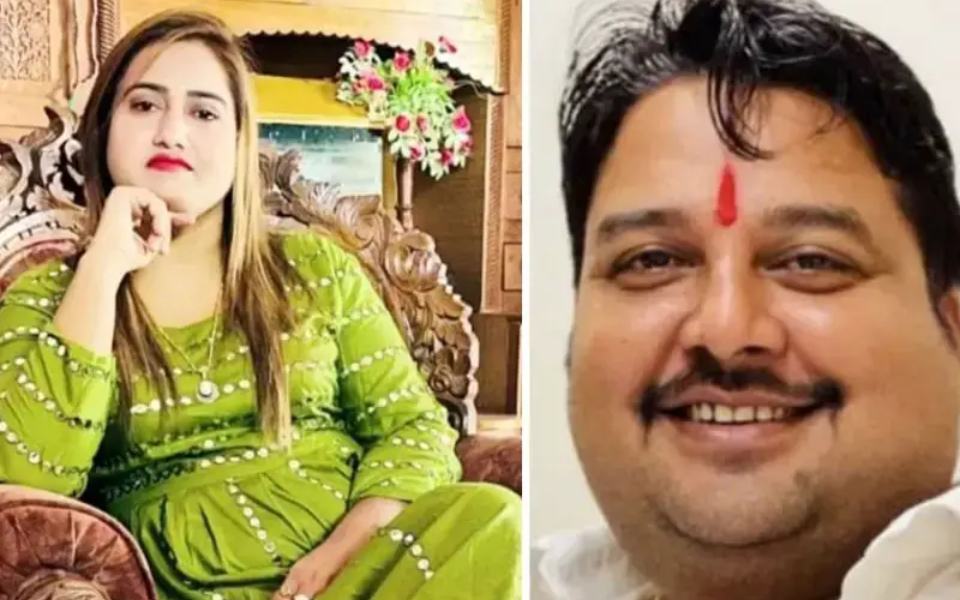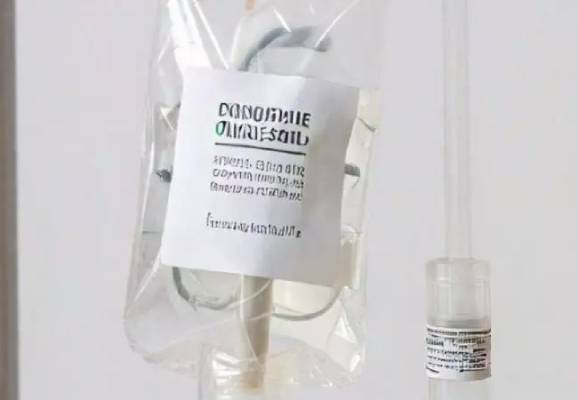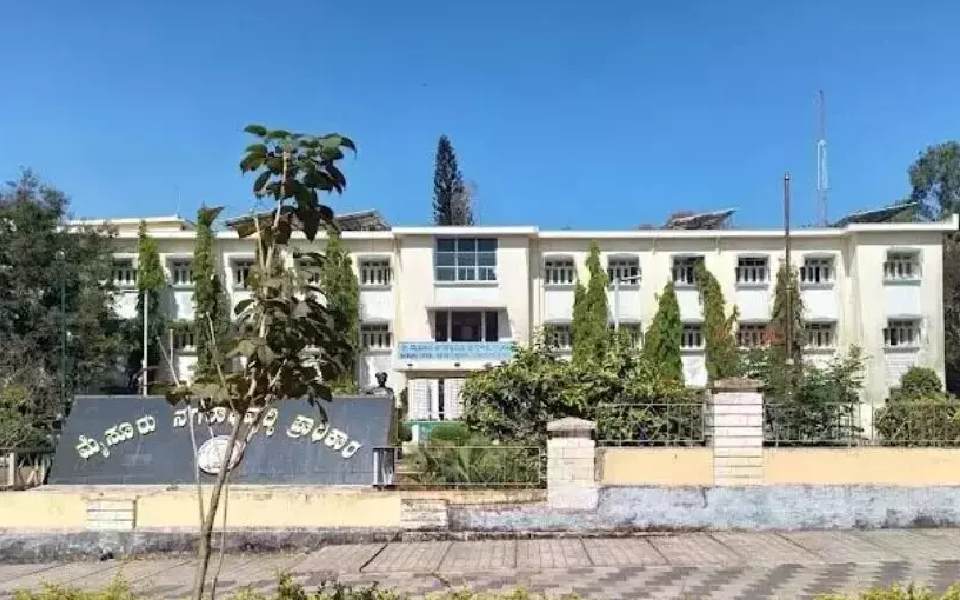Nagpur, Aug 20: Police probing Nagpur-based BJP functionary Sana Khan's murder earlier this month in Madhya Pradesh on Sunday said they have found that she was allegedly forced into a sextortion racket run by her husband and others, who used her as "honey-trap".
Through the ring, the accused targeted several men in Madhya Pradesh, Maharashtra and Uttar Pradesh and earned crores of rupees by blackmailing the victims, they said.
Khan's mother on Sunday lodged a complaint with the Nagpur police, alleging that her daughter was forced into joining the sextortion racket by threatening her. Based on her complaint, a case was registered against Khan's husband Amit alias Pappu Sahu (37) and his accomplices, police said.
Sahu and two others have already been arrested by the police in connection with Khan's murder, which was executed earlier this month in Jabalpur in neighbouring Madhya Pradesh.
Khan, 34, was the Bharatiya Janata Party (BJP) minority cell's functionary in Nagpur. Khan's mother Mehrunisha, a resident of Awasthi Nagar here, had lodged a missing person's complaint when her daughter went untraceable after leaving for Jabalpur on August 1 to meet Sahu.
Sahu was later arrested and told the police that Khan was his wife and he murdered her over monetary and personal issues before dumping her body in a river in Jabalpur, police said.
"Khan's mother lodged a complaint, alleging that her daughter was forced into joining the sextortion racket operated by Sahu and others. After that, the Mankapur police registered a case against Sahu and his accomplices from Nagpur, Jabalpur and Seoni," an official said.
"In our preliminary probe, we found that Sahu led a gang in which Khan was used as a honey-trap. The gang used to target a male victims and send Khan to them. Thereafter, she used to develop physical relationships with them. After that she used to record videos and photographs of the victim in compromising positions, and blackmail such persons to extort money," he said.
This way, the members of the racket used to extort lakhs of rupees from each victim spread across Maharashtra, Madhya Pradesh and Uttar Pradesh, through which they earned crores of rupees, the official added.
Khan became part of the racket in March 2021, which continued till her death, he said.
"The prime accused - Sahu - amassed substantial wealth through this sextortion racket," the police official said.
The police registered a case against Sahu and others under 384, 386 and 389 (all pertaining to extortion), 354 (D) (stalking), 120 (B) (criminal conspiracy), and 34 (common intention) of the Indian Penal Code (IPC), and the Information Technology Act, the police said.
According to police, the relationship between Sahu and Khan had soured after the former grew suspicious about her character.
Following a heated argument over the issue at Sahu's residence in Jabalpur, he murdered her, they said.
Apart from Sahu, police have arrested Ramesh Singh and Dharmendra Yadav, both also from Jabalpur, in connection with Khan's murder, they added.
Let the Truth be known. If you read VB and like VB, please be a VB Supporter and Help us deliver the Truth to one and all.
Bengaluru: The Karnataka Government has sought clarification from the Central drugs standard control organisation following reports linking the serial deaths of pregnant women at Ballari District Hospital to unsafe IV Ringer's Lactate solution. Health Department Principal Secretary Harsha Gupta has written a letter to the Drugs Controller General of India, Rajeev Singh Raghuvanshi.
Recent Investigations revealed bacterial and fungal contaminants in the IV solution given to the women. Out of 192 batches supplied by a West Bengal-based pharmaceutical company, 22 were found substandard by the state drug control department, leading to the suspension of the medicine's use.
However, these batches had passed quality tests at the Central Drug Lab, creating a regulatory conflict.
The Health Department emphasized adherence to tender rules, stating that the Central Drug Lab's approval is legally binding. Samples from the problematic batches have been sent for re-testing at the central lab in West Bengal, with results expected on December 9.
As a precautionary measure, the state has blacklisted the implicated batches and issued directives to halt their use in all hospitals.





